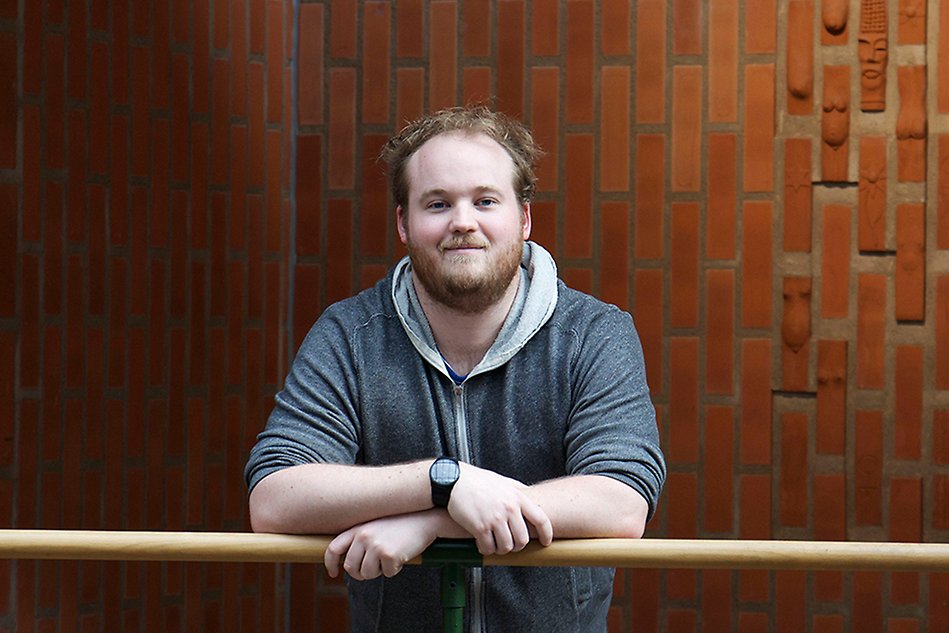Lukas Linnér, Health and Lifestyle
An interview with Lukas Linnér, doctoral student within Health and Lifestyle specialising in Sport Psychology at Halmstad University.

Lukas Linnér.
What’s the subject of your research?
”My research revolves around my ongoing doctoral project entitled ‘The road to a degree and the podium – a digital service to support Swedish student-athletes dual careers’. In collaboration with the Swedish sports confederation, I am in the process of developing a digital support service to promote optimal career development for Swedish student-athletes whom combines elite sports with higher education. I am encouraged in this task having myself combined elite sport with studies, as a college golf player in the USA.”
What’s it like to be a doctoral student?
“It’s characterised by creativity and freedom. I organize my work independently and I thrive on the responsibility this implies. I have long-term and strategic goals which I then break down to carry out planning on a day-to-day basis.
As a researcher, I like being part of a greater whole. Through my efforts I contribute to the development of knowledge and society with the focus on enabling Swedish athlete’s to reach their goals and to feel well along the way.”
Can you describe a typical day?
“In my position here as a doctoral student I have 80 per cent research and 20 per cent departmental duties, where for example teaching and administrative tasks are included. The greater part of my day I spend in front of the computer – I plan, read and write. I also spend some time teaching.”
What’s it like to teach?
“It’s really fun but can also be quite hard work. It’s fun to be in the classroom, but above all it’s fun to follow the students and their development. So much is going on from the first semester until the last year; they grow and start to think in new ways. There’s also an amount of administration linked to teaching and that’s not always as fun.
At the same time, the planning of the teaching can take up a lot of time, especially before one’s familiar with it. To cope with all the work in the time available can be a challenge. It’s essential to be vigilant so that teaching doesn’t have a negative impact on your research – as a doctoral student, after all, one has a lot of ’time’, that is, one’s calendar is not packed and one can appear as having a lot of time, but that’s not the case in reality.
The teaching contributes to making one’s everyday life more dynamic. Sometimes I also feel like a local celebrity; indeed I’ve taught hundreds of students over the years I’ve worked here and many of them turn up now and again, in different contexts. They often come up and say hi. That is a great strength of Halmstad University – there’s proximity between teachers, researchers and students that we must take care off.”
Have you any tips for new doctoral students?
“I’ll give them the same advice as my supervisor once gave me. That is: think ’good enough!’ You can work on your teaching endlessly in order to achieve really good or ’perfect’ quality. But decide on a time frame and keep to it. Set clear goals and avoid trying to achieve perfection since whatever you do, you won’t achieve that and that’s perfectly fine. If there’s any teaching situation which you find difficult, be open about it and speak to your colleagues so you can get support and help.
As a doctoral student you enter into a new world. You must understand the academic environment and the structures and relations that exist there. As for me, it has been important to learn from the tales and experiences of other doctoral students; those who have longer experience than I have so far. They help one to understand the wider picture in which we operate. It also means a lot to be in a context together with other doctoral students, to be able to speak openly and share challenges and experiences.”

